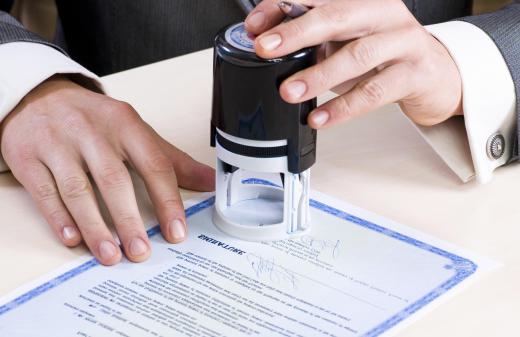A registered domestic partner is one half of a couple who is recognized by the state or city to be legally responsible for the other person's welfare. A registered domestic partner is not the same as a married spouse, as in most cases domestic partners do not have the same federal rights granted to married couples. Typically, registered domestic partners must be of the same sex and cannot be closely related blood relatives.
To become a registered domestic partner in the United States, a person usually needs to prove that he lives with his partner and intends to continue to live with his partner on a permanent basis. In some cases, the partners need to prove that they have lived together for a certain period of time before they can register the partnership. Usually to become a registered domestic partner in a city or state, the couple needs to live in that state or city or work there.

Both partners need to consent to the partnership for it to be valid. In most cases, both must be at least 18 years old. States such as California and New Jersey allow opposite-sex partners to enter into a domestic partnership as long as one partner is more than age 62.
Registered domestic partners cannot be so closely related by blood that they would legally be barred from marriage in their state. The couple also cannot be legally related by marriage. A person can only be a registered domestic partner in one relationship at a time. In some places, such as New York City, he cannot enter a domestic partnership within six months of leaving another domestic partnership.

A registered domestic partner must fill out paperwork and pay a fee to his city or state to be officially recognized. Usually, the registration form must be signed by both partners and notarized. In some states, such as California, the partners can take each other's last names or change their last names to a new one. After registering, the couple receives a certificate of domestic partnership.

Although registered domestic partnerships may not be recognized by some states or by the federal United States government, they do grant couples certain rights. After registering as domestic partners, a couple has the right to visitation if one partner is jailed, a right to make medical decisions in some states, and can file state taxes jointly in some states. Even though some registered domestic partners can file joint state tax returns, they must file as single on federal tax returns.
